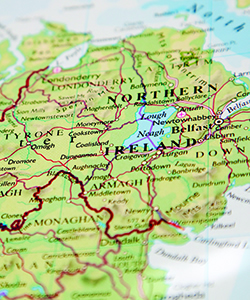Response: Religious Leaders and the Northern Ireland Peace Process

Nukhet Sandal
April 20, 2018
Tuesday, April 10, 2018, marks the twentieth anniversary of the Good Friday Agreement, a key moment in the Northern Ireland peace process. This historic event was of global significance, made possible through the work of political and religious actors from Northern Ireland, Great Britain, the Republic of Ireland, and the United States. After decades of sectarian conflict, the agreement brought a peace to the region which remains to this day. However, the result of the United Kingdom’s 2016 referendum on its membership in the European Union has cast doubt over the continuation of this stability, and the force and longevity of the Good Friday Agreement. Though the United Kingdom as whole voted to leave the EU, nearly 56 percent of Northern Ireland residents voted to remain. While some argue that this stretch of peace in Northern Ireland proves the agreement is no longer necessary, some fear the possible return of a “hard border” on the island of Ireland will fracture the relationship between the Republic of Ireland and the United Kingdom. Others point to the continued self-imposed segregation between Protestants and Catholics in Northern Ireland as indicative of an uneasy peace that could be upended without the Good Friday Agreement.
This week the Berkley Forum asks: What role have religious leaders played in maintaining the present stability in Northern Ireland, and how can this be extended into the future? Would the peace last between republican Catholics and unionist Protestants if the Good Friday Agreement came to an end? In what ways does Brexit highlight the complex interplay between economic status, religious identity, and political affiliation in Northern Ireland?
Response: Religious Leaders and the Northern Ireland Peace Process

Nukhet Sandal
April 20, 2018
Response: Bye-Bye Britain: Brexit and the Conflation of Identities in Northern Ireland

April 16, 2018
Response: Promise and Failure in a Postcolonial World: The Good Friday Agreement and South African Democracy

Cóilín Parsons
April 16, 2018

Eileen Connolly
John Doyle
April 16, 2018